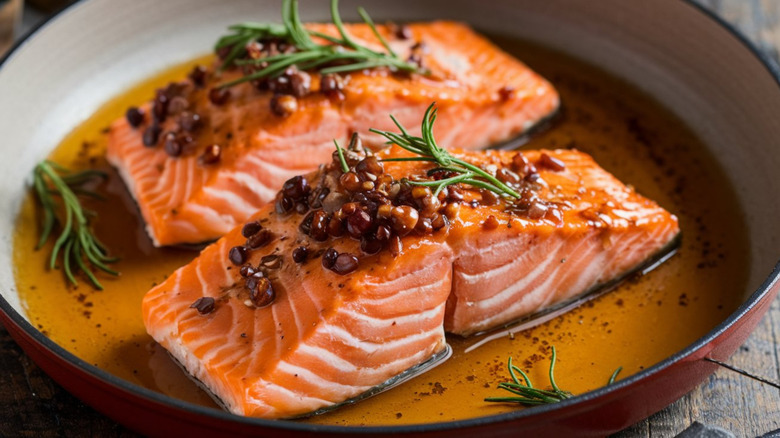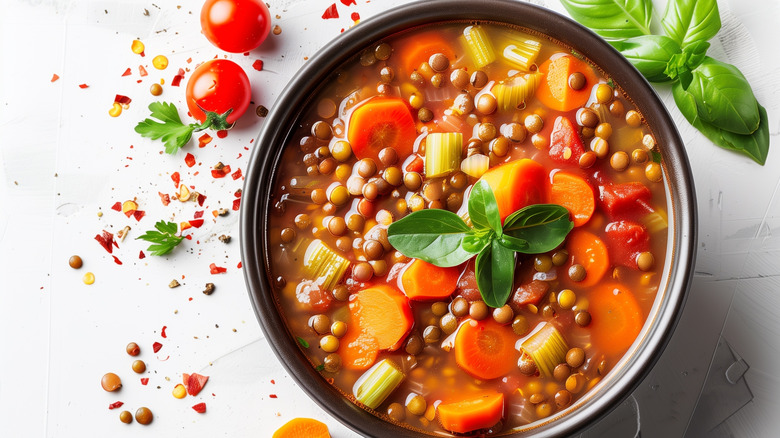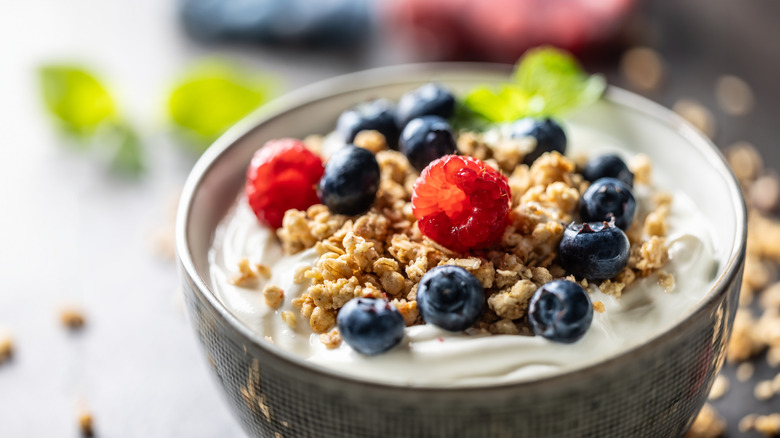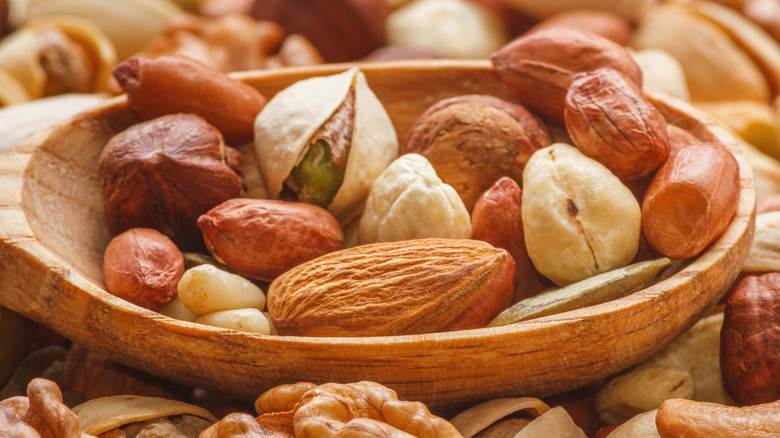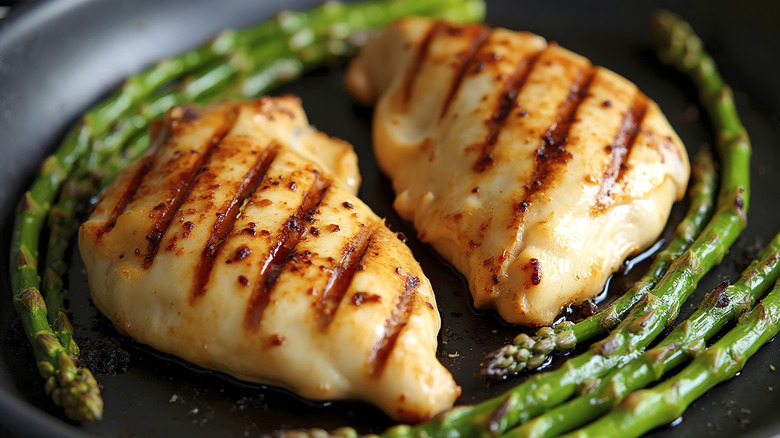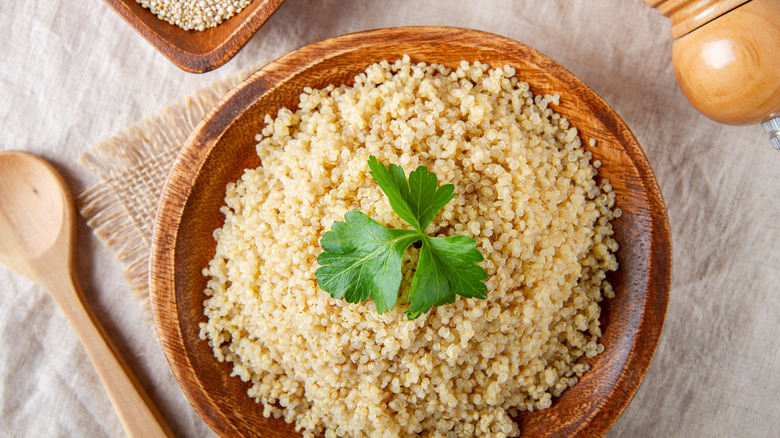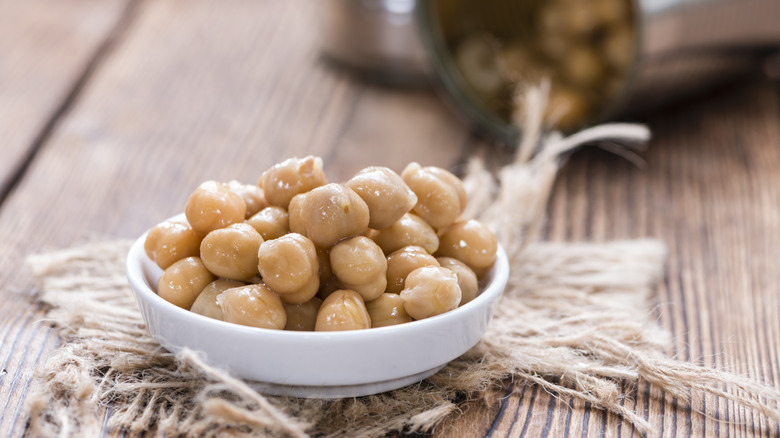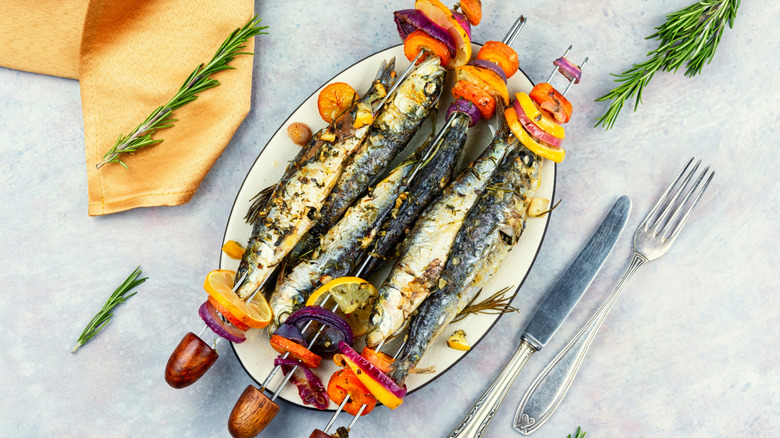Not Eating These Proteins Can Increase Your Early Death Risk
It's very hard to understate the importance of protein in one's diet. Protein is an important building block for your body, with everything from muscles and bones to your hair and fingernails benefiting from it. It also helps keep the body oxygenated thanks to a protein compound in red blood cells that ferry oxygen through the body. For people looking to get in shape or stay in shape, protein is key for building lean muscle, reducing the loss of muscle, and accelerating recovery after exercise. (Read about what lifting weights really does for your body.)
However, despite the importance of protein, a 2019 study published in The Journal of Nutrition, Health, and Aging shows that very few adults in the U.S. have enough of it as a staple of their diets. The study showed that a third of the adults profiled were missing 30 grams of protein from their daily diet, which is approximately half of the recommended intake. Adding these foods to your diet can help keep you in better shape and could also boost your life expectancy.
Salmon
A healthy dish that's packed with nutrients, there's no doubt that salmon is a powerhouse food that's worth adding to your diet. For starters, on top of its rich protein content, salmon is high in a number of nutrients your body will thank you for, including selenium, phosphorous, and vitamins B12 and B6. It's also high in much-needed omega-3 fatty acids, which are great for reducing inflammation and supporting brain health. (Here's what happens when you don't get enough selenium.)
Salmon is also very low in fat and high in vitamin D, iron, and potassium. The assorted nutrients in salmon can help with a number of different ailments, including reducing cardiovascular issues, keeping blood pressure down, and lowering your cholesterol levels. In addition, the omega-3 fatty acids that are so crucial to your health can't be made by your body, so foods like salmon are even more critical to add to your diet. These fatty acids can help with everything from cancer prevention to keeping dementia at bay.
Lentils
These legumes are a good source of plant-based protein, as well as fiber and other healthy minerals. Lentils are not only easy to prepare; they are also bursting with healthy nutrients that can do everything from supporting heart and digestive health to keeping blood pressure and cholesterol levels down. They are also high in plant compounds known as phenols, which are excellent for staving off such chronic problems as diabetes, cancer, heart disease, and even obesity.
There are a wide range of benefits to adding lentils to your diet. They are high in folate, which is an essential vitamin for pregnant women. The folate present in lentils can help lower the risk of gestational diabetes and prevent neural tube defects in babies. Lentils are also good for people who might be trying to watch their waistlines, as the fiber content goes a long way towards making one feel fuller more quickly and reducing their appetite.
Eggs
Eggs are one of the best sources of protein that one can add to their diet, with just one egg offering anywhere from 6 to 7 grams of protein. Additionally, they are rich in a wide array of vitamins and minerals, including iron, folate, selenium, and vitamins A, D, E, and B12. Eggs are also great for maintaining weight, as they can help you feel fuller for longer, especially when you start your day with them. Having eggs on your plate in the morning has been shown to stave off hunger longer than having cereal in the morning.
According to a 2022 study published in Nutrients, eggs have been shown to lower the levels of ghrelin, the hormone that makes you feel hungry. In the study, 25 men ate either eggs or bagels for breakfast, switching off after a week. At the end of the study, blood tests revealed that eating eggs reduced hunger more than eating bagels.
Greek yogurt
Yogurt in general is a good option when seeking out a healthy snack, provided you don't choose one loaded with added sugars or other ingredients. But Greek yogurt in particular is a great source of protein, with just one seven-ounce serving containing 20 grams of protein. It's also a great source of such nutrients as calcium, phosphorus, and magnesium, all of which are helpful for good bone health. (Read everything you need to know about magnesium.)
The healthy elements of Greek yogurt extend beyond protein. It could be helpful in lowering levels of both cholesterol and triglycerides in the body. Both of these have been linked to hardening of the arteries and atherosclerosis. For women, the live cultures in Greek yogurt can be beneficial in preventing vaginal yeast infections. However, it's important to talk to your doctor if you think you may have a yeast infection rather than just reaching for the yogurt first.
Nuts
Filled with healthy fats and proteins, nuts are a great choice for snacking. The nutrients present in nuts have been proven to have benefits for cardiovascular health. This claim is bolstered by a 2023 study published in Nutrients. That study showed that people who add nuts to their diet have a 19% lower risk of developing heart disease and a 25% lower risk of dying from it.
In addition to their heart-healthy benefits, nuts are also an excellent source of plant-based protein. And the beauty of nuts is that there are plenty to choose from to give you a protein boost. For example, a quarter cup of walnuts has 4.3 grams of protein, as well as omega-3 fatty acids and heart-healthy fats. Pine nuts (which are technically seeds) offer the same amount of protein, but also have anti-inflammatory effects. Hazelnuts offer 5 grams of protein in a quarter cup, and also may help keep your cholesterol under control to boot.
Chicken breast
In general, chicken is a great protein source, regardless of the cut. However, chicken breasts have the highest protein amount, with one skinless, cooked breast offering up 56 grams of protein. Given the fact that chicken breast is high in protein and low in calories, it's a great choice for people looking to lose weight and stay healthy.
The amino acids found in chicken protein have numerous health benefits. They're excellent for building stronger muscles and for maintaining your bone mineral density. Over time, as you age, this can be helpful in staving off such ailments as osteoporosis. It can also help you feel fuller during meals, which can help keep your heart down. A healthier weight is key for staving off heart disease over time. In addition, chicken is loaded with a number of healthy vitamins and nutrients, including choline, which supports brain health, and tryptophan, a known mood booster.
Quinoa
Healthy and packed to the rafters with nutrients, quinoa has been popular in South America for centuries and is just starting to catch on in the rest of the world. A cup of quinoa has more than 5 grams of fiber, a little more than 200 calories, and 8 grams of protein. Plus, they are a plant-based food that contains all nine of the amino acids that the body needs. It's a great way to get a complete protein without some of the associated health risks that come from eating meat.
In addition to its high protein content, quinoa is filled with a bunch of high-quality nutrients. The phytonutrients in quinoa have anti-inflammatory properties, which can help both prevent and treat disease. It also has probiotic qualities and can help to enhance the diversity of good bacteria in the gut and reduce gut inflammation caused by such conditions as colitis.
Chickpeas
Another great source of plant-based protein, chickpeas (sometimes known as garbanzo beans) are low in saturated fat and high in protein. (Here's the real difference between saturated and unsaturated fats.) Just a half-cup serving of chickpeas provides almost 20 grams of protein and 5 grams of dietary fiber. In addition, they're a vitamin-rich food, offering a slew of healthy vitamins, including folate, iron, and vitamin C.
The protein and fiber in chickpeas are also really good for keeping your appetite under control. A 2017 study published in the Journal of Food Science and Technology had a group of women eat 200 grams of chickpeas before one meal and two slices of white bread before another meal. The study results showed that, after eating the chickpeas, the women ate much less at the next meal versus after consuming the bread. Additionally, chickpeas resulted in a 29 to 36% reduction in blood sugar spikes compared to white bread.
Sardines
These tiny little fish, traditionally served in a can, are an underrated healthy option, low in calories and saturated fats and high in protein. A 100-gram serving of fresh, cooked sardines has more than 25 grams of protein. That makes them a great food choice for building muscle mass and also for losing weight, as their high protein content makes you feel fuller for longer.
In addition to the benefits offered by their high protein content, sardines can also be good for your body in other ways. According to a 2023 study published in Frontiers of Nutrition, the omega-3 benefits of sardines are strong enough that adding them to your diet may protect your heart better than taking supplements. These omega-3 benefits can also extend to the brain, as evidenced by a 2018 study published in Nutrients showed that omega-3s improved brain health in patients across age ranges and also improved attention and visual processing in younger children.


